
Founded in Warwick in 1968, the Edgar Broughton Band came to embody a distinct facet of the British counterculture. Their intense songs often dealt in socio-political issues, earning them a reputation as a confrontational bunch with a happy habit of extending the middle finger to authority.
Led by singer/guitarist Rob ‘Edgar’ Broughton, with brother Steve on drums and bassist Arthur Grant, their music was just as uncompromising. Psychedelia, heavy rock, beardy prog and experimental folk were locked in an uneasy embrace, usually crowned by the kind of low vocal rasp that saw Broughton routinely compared to Captain Beefheart.
Signed to Harvest, the progressive arm of EMI, they quickly became known as a ‘people’s band’, playing free festivals and a steady stream of benefit gigs for any number of worthy causes. Arrests, fines and court appearances were not uncommon during the Edgar Broughton Band’s 70s heyday, though nothing appeared to dissuade them from their objectives. Their fanbase only became more committed, while the anthemic Out Demons Out (inspired by The Fugs’ mock exorcism of the Pentagon) sought to unite the disaffected in a way that was both cathartic and convivial.
They issued a string of ambitious studio albums along the way, from 1969’s deeply weird Wasa Wasa to the stringsenhanced sophistication of 1971’s Edgar Broughton Band and on through the more expansive terrain of Oora (1973) and Bandages (1976). The band finally bowed out in 1982 with Superchip, a mostly synth-led concept piece about sinister governmental control.
Diese Geschichte stammt aus der Issue 145-Ausgabe von Prog.
Starten Sie Ihre 7-tägige kostenlose Testversion von Magzter GOLD, um auf Tausende kuratierte Premium-Storys sowie über 8.000 Zeitschriften und Zeitungen zuzugreifen.
Bereits Abonnent ? Anmelden
Diese Geschichte stammt aus der Issue 145-Ausgabe von Prog.
Starten Sie Ihre 7-tägige kostenlose Testversion von Magzter GOLD, um auf Tausende kuratierte Premium-Storys sowie über 8.000 Zeitschriften und Zeitungen zuzugreifen.
Bereits Abonnent? Anmelden

JAKKO M JAKSZYK
King Crimson's vocalist and guitarist shares anecdotes from his revealing new autobiography, discusses his lost career as a footballer and reveals what he said when he met the former king of pop.
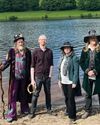
A Part & Yet Apart
Sheffield-based 80s proggers Haze have returned with a new studio album, The Water's Edge - their third since their 2013 comeback record, The Last Battle. Prog catches up with threequarters of the band to discuss Haze's DIY ethos, the curse of prog and playing to Cumbrian sheep farmers.
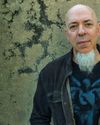
CONTROLLED AIRSPACE
He's about to embark on Dream Theater's 40th Anniversary Tour, but keyboard maestro Jordan Rudess has taken time out to discuss his soaring new solo album, Permission To Fly.

On The Wing
Birds, break-ups, big choruses and the Charlie Chaplin effect can all be found on In Murmuration, the ninth album from Finland's Von Hertzen Brothers. But as they embrace their power pop influences, have the Finns cast off their prog wizard cloaks once and for all? Mikko von Hertzen talks about the Seattle influence, songwriting secrets and sax solos.
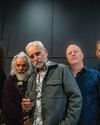
Fourth Dimension
The stock of melodic Northumberland-based proggers Stuckfish has been rising since they formed six years ago. Their fourth studio album, Stuckfish IV, represents an important watershed in the band's musical evolution. Co-founders Adrian Fisher and Phil Stuckey tell Prog about the diverse influences that have helped to shape it.
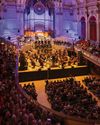
Symphly The Best
In the 70s, Barclay James Harvest almost bankrupted themselves by performing with an orchestra, but, several decades on, they’re celebrating last year’s performance with the Slaithwaite Philharmonic, captured on their latest live record, Philharmonic! The Orchestral Concert. John Lees reminisces over the band’s ambitious early years and bassist Craig Fletcher fills Prog in on JLBJH’s upcoming “progtastic” double album.

We've Not Been Expecting You
The unpredictable Frost* are back with Life In The Wires, a bold double concept album that revisits the mood of Milliontown. Bandleader Jem Godfrey tells Prog why he rolled out the solos on a record he describes as the most fun since their dazzling debut.

FAR HORIZONS AND PANORAMIC AMBITIONS
Dutch five-piece Lesoir have been steadily gathering momentum over the last 15 years, and they hope to build on that with their latest release, Push Back The Horizon. Vocalist/ instrumentalist Maartje Meessen and guitarist Ingo Dassen discuss the creation of their sixth album, working with Muse's production team, and their dream of bringing their intricate music to new audiences.
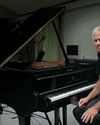
'I mean, what is classical nowadays?'
Tony Banks reflects on his role as a 21st-century classical composer.
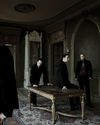
There Can Be Only One!
Never meet your heroes, or so the saying goes, but Opeth have had a blast working with Ian Anderson on their latest, The Last Will And Testament. Bandleader Mikael Åkerfeldt and guitarist Fredrik Åkesson discuss the band's proggiest album to date, the return of the growl and why blood isn't always thicker than water.